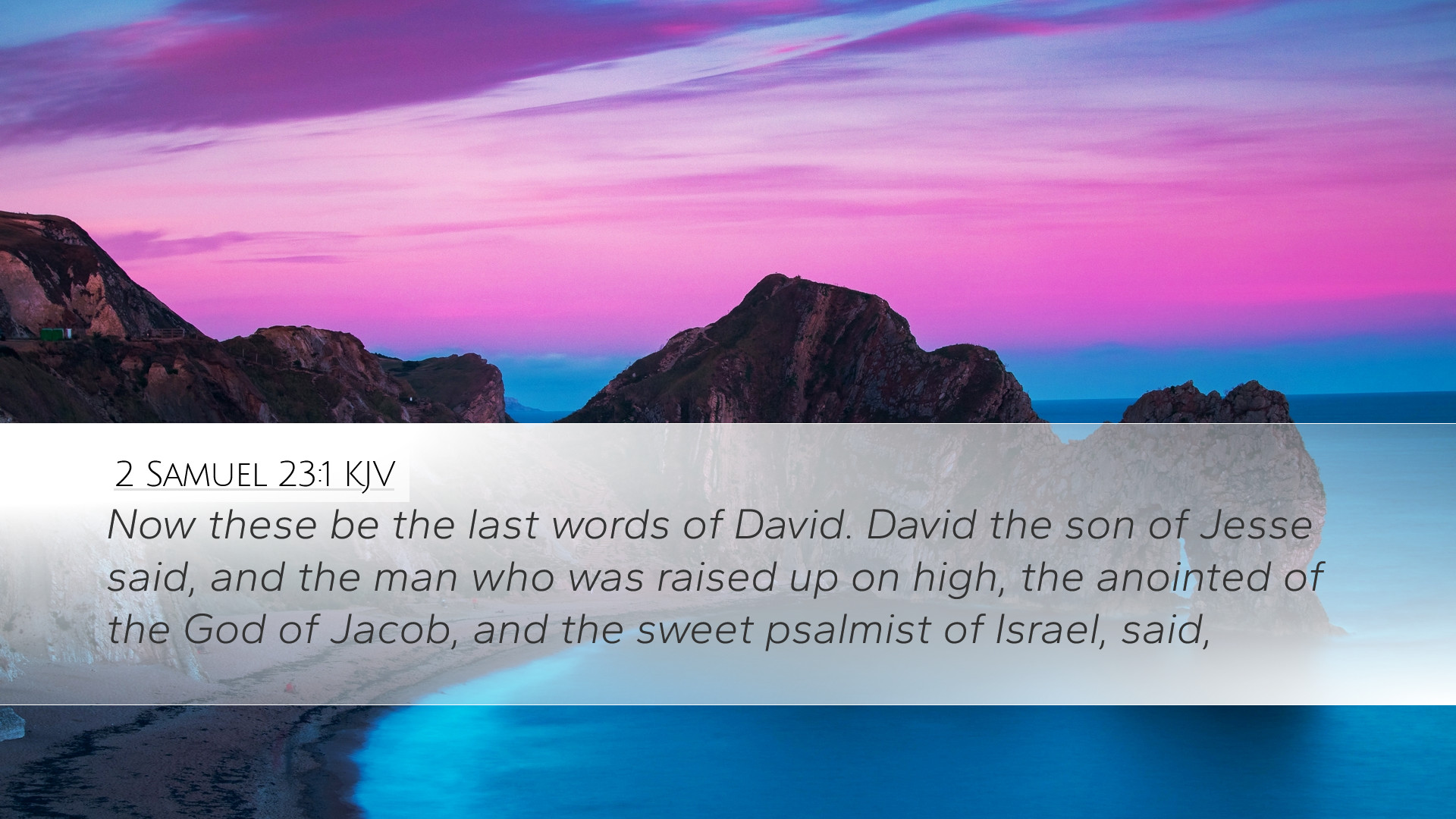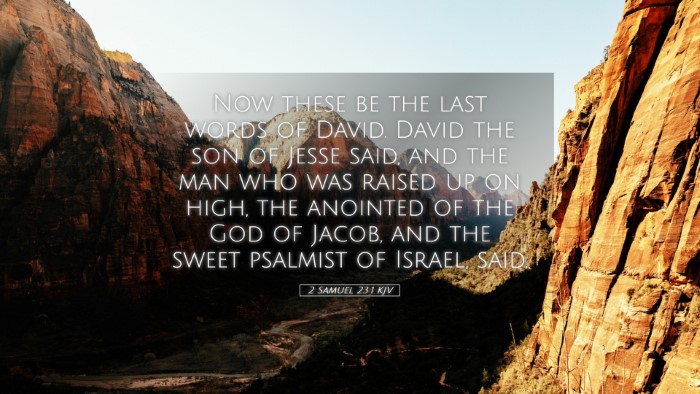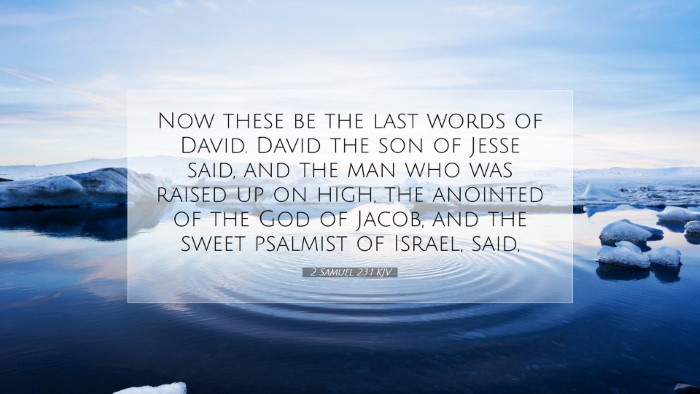Commentary on 2 Samuel 23:1
Verse Text: "Now these are the last words of David. David the son of Jesse said, and the man who was raised up on high, the anointed of the God of Jacob, and the sweet psalmist of Israel, said,"
Contextual Overview
This verse introduces what is often considered the final words of King David. It serves as a preface to the closing thoughts and reflections of one of Israel's most revered monarchs.
Historical Significance
David's reign marked a pivotal era in Israel's history. As both a warrior and a poet, he unified the tribes and established Jerusalem as the capital. This verse encapsulates his legacy, interspersed with themes of anointing, divine favor, and creativity.
Commentary Insights
- Matthew Henry: Henry observes the significance of David's humble beginnings as the son of Jesse and contrasts it with his elevated status as king. He emphasizes that despite his rise, David remained grounded and acknowledged his divine anointing. This humility is a crucial aspect of authentic leadership.
- Albert Barnes: Barnes describes the phrase "the man who was raised up on high" as a recognition of David's elevation by God, stressing that kingship is a divine appointment. He points out that David's anointing by God was not just for political authority but also for spiritual leadership as implied in the title "the sweet psalmist of Israel," highlighting the importance of worship in David’s reign.
- Adam Clarke: Clarke delves into the poetic nature of David's final words. He notes that David’s life was characterized by both triumph and tragedy, providing a rich backdrop for his reflections. Clarke emphasizes the dual nature of David as a warrior king and a worshipful poet, illustrating the comprehensive call of leadership in the spiritual realm.
Thematic Elements
In this verse, several prominent themes emerge that are of great significance for a deeper theological understanding:
- Divine Anointing: David's role as the anointed of God reminds us of the sovereignty of God in choosing leaders and the gravity of that calling.
- Legacy and Memory: The phrase "last words" conveys the weight of finality and reflection, inviting future generations to consider the legacy of faith leaders.
- Worship and Poetry: As "the sweet psalmist of Israel," David's contribution to worship through music and poetry illustrates the importance of glorifying God in both personal and communal expressions.
Practical Applications
The implications of David’s last words can be profound for pastors, students, and theologians alike:
- Leadership: Reflecting on David’s leadership style encourages modern leaders to prioritize humility, divine reliance, and spiritual integrity over mere authority.
- Worship: Emphasizing the importance of creative expression in worship provides a model for how churches engage congregations today through music and art.
- End-of-Life Reflections: David’s farewell reminds believers to articulate their faith and values to those they influence, encouraging a legacy built on devotion and worship.
Conclusion
2 Samuel 23:1 not only serves to conclude David's life legacy but also as a source of inspiration for all who seek to honor God in their vocations. The interplay between divine calling, worship, and leadership that characterizes this verse encourages believers to aspire toward a life that glorifies God through both action and artistry.


